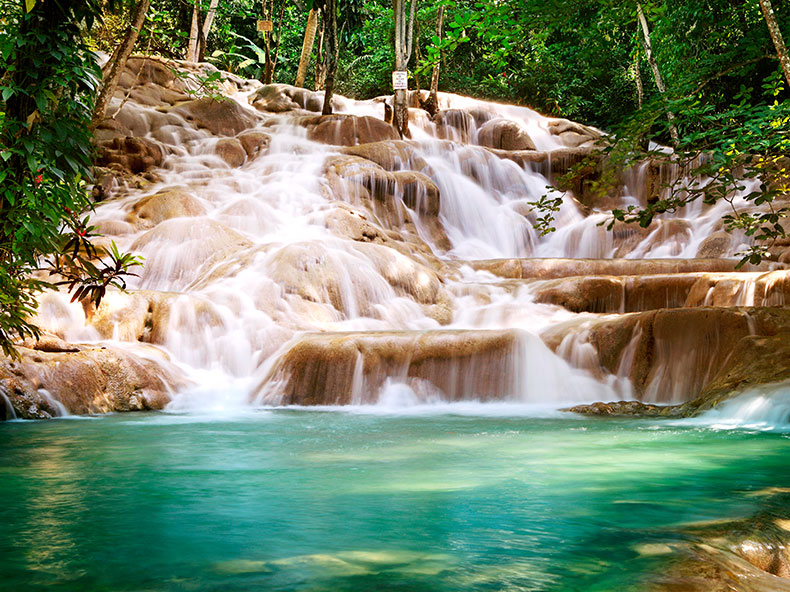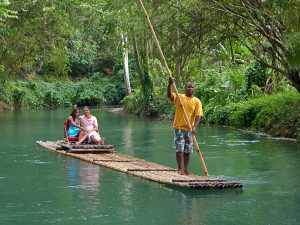I watched a fascinating documentary recently called Jamaica for sale. I think it is a must- see for anyone interested in tourism and concerned about income inequality. The bottom line is that tourism can be a good thing. In fact, it is important for many nations and not just for island nations like Jamaica but nations like France which is the often listed as the most visited country in the world.
Tourism brings together people of all nations to experience another culture, and sometimes in the process to gain insight on their own culture. Tourism can and does contribute to a country’s Gross National Product. (GNP) These are good things. In fact, I recommend travel to students in all my classes. I always say that books are not enough. Films are not enough. Lectures are not enough. I have learned so much from my many and varied trips to the continents of Africa and Europe as well as the countries of the Caribbean. I tell students that they have to SEE and experience a place for themselves. Reading for me was just the start of a long and important journey of discovery not just of new places but of my own positionality in a complex world.
That is why a film like Jamaica for sale is disquieting…but necessarily so. We know tourism can be a good thing, but the film asks us to ponder: what kind of tourism? And are all types of tourism equal? In the case of Jamaica, the answer is clearly no. Tourism that has a negative impact on the environment and ultimately the people of Jamaica is not the kind of tourism that is sustainable. The film details many contemporary issues including the destruction of coral reefs, the erosion of the land and depletion of the beaches. Perhaps what was most striking, however, was the continuous building of huge hotels without addressing the needs of the workers and their communities.
As a casual observer of Jamaica’s coastline over the years, it was clear to see that one hotel after another was gobbling up the beach – beaches that are not always accessible to the average Jamaican. The bigger problem, however, is that there never seems to be a plan in place that for every hotel, there is an accompanying infrastructure for neighboring communities where employees live. Big hotels with modern day facilities of every kind are a stone’s throw away from rural communities with little or no running water or a proper electricity grid. Furthermore, often the average worker cannot afford to live near their workplace because of high rents, and so must live many miles away and pay exorbitant amounts for transportation. It can’t be surprising then, that many seek to emigrate to other shores when considering how best to take care of their families.
When these hotels present their plans for investment, someone in the government should require that they assist with the structural inequality issues that Jamaica continues to face. Too many workers complain that after they pay transport costs and childcare, they have little or no capital with which to build a life. Work gives them something to do, but not something to build on. In other words, it does not eradicate poverty; it just keeps them from being idle.
That can’t be the best kind of tourism. Eventually, people will just stay home and live off the land if they have access to land. Eventually they will make decisions to opt out of a system that does not benefit them. Sadly, some will turn to crime. Jamaicans need water, electricity and good roads in their neighboring communities; they don’t need to feel as if they are entering another world when they go to work only to go back in time when they return to their own communities.
This kind of structural inequality is not sustainable even for the hotels who build only their own structures and contribute now and then to communities through small foundation grants; they may say that it is technically not their responsibility and it is not, but the fact is it also pays to be your brother’s keeper.
Their enterprise depends on their workers. No matter how beautiful that beachfront property is—what makes it come alive is the energy and vibrancy of the Jamaican people. There is no business without them and rightly so. Guests are often interested to know more about their lives. In contemporary times, many guests want to know that the person cooking and serving their food is also doing well. And so, a sustainable business in Jamaica is sustainable for all. It is also worth noting that there are many other kinds of tourism: responsible eco-tourism, community tourism and heritage tourism. These need to be further explored as well.
If we put people over profit, tourism and inequality need not go hand in hand. We must find a way to make tourism work for all concerned. The film, Jamaica for Sale, encourages us to do just that.
Anne C. Bailey, author of The Weeping Time: Memory and the Largest Slave Auction in American History. (Cambridge University Press, 2017)
Featured picture: Nev ena [CC BY-SA 4.0 (https://creativecommons.org/licenses/by-sa/4.0)]
Second picture by Nev ena – Own work, CC BY-SA 4.0, https://commons.wikimedia.org/w/index.php?curid=59015498
For more information, see Jamaica Environmental Trust, https://www.facebook.com/jamentrust





 Find Anne C. Bailey's non-fiction book :
Find Anne C. Bailey's non-fiction book : 



